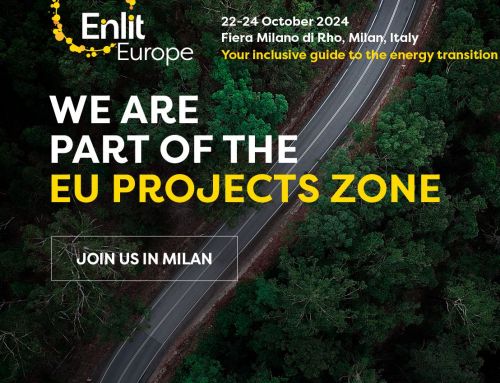The EU project RESONANCE is developing an innovative software framework that provides means for rapid development and plug-and-play deployment of standard-compliant solutions for demand-side flexibility management across various sectors. Pilot sites in six European countries will test and replicate the solutions.
“Despite the many advances made to get demand-side flexibility going at a large scale, it is still not cost-efficient to harness flexibility from distributed and small-scale assets such as homes, buildings, and electric vehicles. RESONANCE wants to change this and significantly reduce the efforts and costs by making it easier to tailor energy and flexibility management solutions for different consumer sectors,” explains Project Manager, Markus Taumberger from VTT Technical Research Centre of Finland.
One of the barriers to large-scale mobilisation is the lack of a software framework with modular, standard-compliant building blocks that allow for plug-and-play development of services. To overcome this, the RESONANCE software framework contains three modular catalogues of software micro-services: Customer Energy Manager (CEM), Resource Manager (RM) and Aggregation and Market Integration, of which the first two are specified in the EN 50491-12 standard family. The CEM concept represents a fundamental change to the role of energy consumers and prosumers, moving from being passive recipients to active participants in the energy ecosystem. In this regard, the CEM concept has the potential to revolutionise demand-side flexibility management and enable new consumer-oriented services.
The catalogues are accompanied with configuration tools as well as data and service marketplaces enabling easy access to the catalogues and associated data. Thus, the framework provides the building blocks necessary for the modelling and management of flexibility from smart appliances in a plug-and-play manner. And based on a hybrid modelling approach, model predictive control techniques and Artificial Intelligence, the accuracy, predictability, and automation needed to utilise the flexibility are established.
Pilot sites in six European countries
Pilot sites in France, Germany, Greece, Slovenia, Sweden, and Finland will test, develop, and replicate the RESONANCE catalogues and services. To illustrate the scalability and wider replication potential, the piloting will entail aggregation of flexibility across various consumer sectors, covering both residential, public, industrial, and commercial buildings and services. It will include multiple flexible assets such as heating, ventilation, and air-conditioning systems, electric vehicles, solar panel systems, heat pumps and white goods. And finally, it will involve a multitude of stakeholders and market settings, integrating electricity with district heating to optimise energy and flexibility across different energy vectors.
“The aim is to create a vibrant cross-sector ecosystem that successfully deploys demand response for the benefit of the consumers; enables a sustainable business for providers of demand-side flexibility management solutions and facilitates a wider adoption of CEM, RM and aggregation solutions in Europe and worldwide,” concludes Markus Taumberger.
Facts about RESONANCE
RESONANCE is co-funded by the European Commission through the Horizon Europe Framework Programme for Research and Innovation under Climate, Energy and Mobility and the topic: Replicable solutions for a cross sector compliant energy ecosystem. It started in January 2023 and will end in December 2025.
The project brings together 19 European organisations from research, industry and the public domain, uniting AI experts, energy engineers, behavioural scientists, social and humanities experts, economists, utilities, and service providers from different sectors. Seven European countries participate in the project with pilot sites in: Marseille, France; Bavaria, Germany; Municipality of Eordea, Greece; Celje Region, Slovenia; Mölndal, Sweden and Helsinki, Finland.






